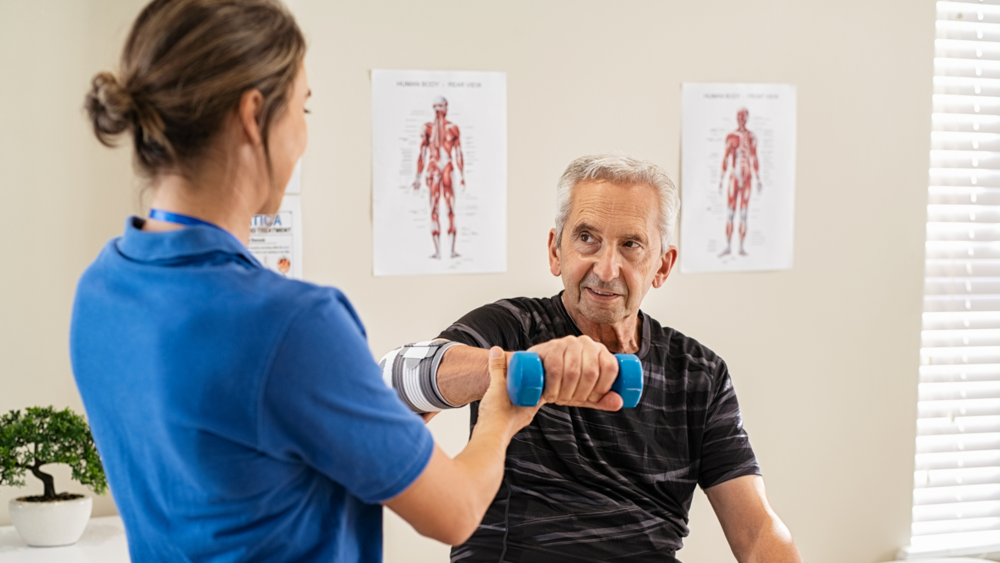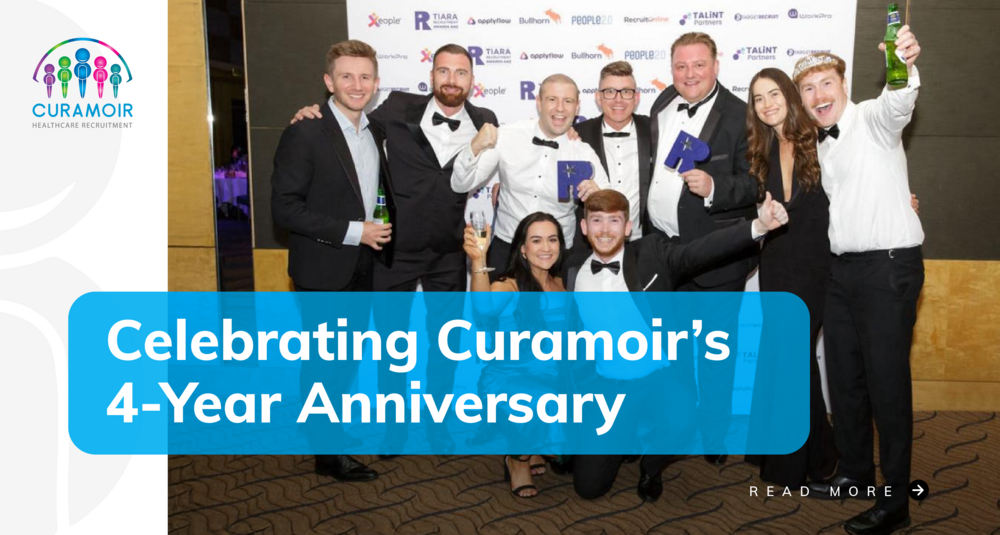Starting Your Career in Allied Health
Donnchadh Lawlor,
Chief Executive Officer

After years of hard work, you've graduated and are ready to step into the allied health world. Allied health careers in Australia are some of the most rewarding and respected roles in healthcare, so you’ve made an excellent choice!
As a Physiotherapist, Speech Pathologist or Occupational Therapist, you will be making a real difference in helping people restore or maintain their quality of life.
But, as a recent graduate, how do you begin preparing for the world of allied health jobs and building your career? Here are some tips to help you hit the ground running.
Understand Your Scope and Specialisation
Allied health careers are diverse, and your path can take so many directions. You could be drawn to working with children, helping older people maintain their independence, or supporting people recovering from injuries. Take time to reflect on what interests you about a particular area. Exploring specialisations early on can help you build a clear sense of direction in your career. This can also help you make the best use of your strengths.
Gain Experience in Different Settings
Don’t be afraid to explore different settings – it can be hugely beneficial to your early career development. Rotating through different environments can help you discover what you enjoy most and is excellent for broadening your skill set.
An APA survey of Physiotherapy students and graduates found that 62% would have liked more exposure to different clinical settings, and 86% felt that blended placements would have been better for helping them to develop the broad skills necessary for success in their Physiotherapist jobs.
It pays to get a variety of work experience under your belt – in hospitals, private practices, schools, aged care facilities, community health services, and even workplaces.
Think Long-Term
It’s never too early to start thinking about where you’d like your career to go. As you gain experience in a range of settings, you can then start thinking about where you see yourself within the next five years. Do you see yourself in leadership, private practice, research, or a niche specialisation? Setting goals now can help you make strategic decisions about your future roles.
Build Your Network
Healthcare professionals get plenty of benefits from being members of professional networks, and allied health professionals are no different. Consider joining professional associations like Occupational Therapy Australia (OTA), Speech Pathology Australia (SPA), the Australian Physiotherapy Association (APA) or Allied Health Professions Australia (AHPA). These organisations can provide you with essential updates on what is happening within your field, such as the impacts of new government policies. They can also give you skills development opportunities that are tailor-made for your specialisation.
Online networking can be valuable, too. Connecting with other Physios, Speech Pathologists, or Occupational Therapists on platforms like LinkedIn can help you make new friends and lead to future job opportunities
Never Stop Learning
Jobs in allied health are constantly evolving, thanks to new research, techniques and technology. Staying up-to-date can help you make both small and profound changes to your work as an Occupational Therapist, Speech Pathologist or Physiotherapist.
Look into continuing professional development (CPD) courses, workshops and certifications relevant to your role. Many employers offer funding or leave for further education, so don’t hesitate to ask.
Focus on Soft Skills
Technical expertise is the baseline for your success as an allied health professional. However, your ability to communicate, empathise and problem-solve will be just as vital. Developing your soft skills early enables you to build a strong foundation for all types of jobs in allied health.
What will set you apart as an effective and compassionate professional? Learning how to build rapport with clients, explaining treatment plans clearly and adapting your approach to people from all walks of life.
It's wise to focus on building your active listening skills and self-awareness so you can respond to new situations effectively. At the most basic level, staying curious, asking questions and consistently trying to understand where people are coming from will help you do a great job.
Ask the Right Questions Before Accepting Offers
As a new graduate, you’ll likely receive multiple job offers. It’s essential to do your due diligence when selecting a company.
Ask questions such as:
What does a career look like for me at your organisation?
What does the induction process look like?
What does the supervision program include?
What is the company’s staff retention and turnover rate? This can provide valuable insights into the company’s reputation.
Don’t hesitate to message people who previously worked with the organisation and ask about their experience.
Rather than focusing solely on salary, make sure you’re joining a company for the right reasons. Ensure the organisation provides a clear pathway to set you up for success and build your confidence and skillset – the money will follow!
By carefully selecting a supportive and growth-oriented workplace, you’ll set yourself up for success and gain access to the guidance and mentorship you need as a new graduate.
Remember to Ask for Help
Starting out as a new graduate can feel overwhelming at times, but it’s important to remember that you’re not alone. Supervisors, mentors, and peers are there to guide you. More experienced colleagues have been in your shoes and understand what it’s like when you’re just starting out, so they want to see you succeed.
Ask questions and seek feedback whenever you can – and don’t hesitate to reach out if you’re unsure about something!
Consider Regional Opportunities
Demand for allied health professionals is exceptionally high in regional and rural areas of Australia. Working in these locations can offer unique experiences and perks that you won’t find in the big cities, like relocation assistance or student loan offsets, especially in areas such as aged care.
In regional and rural areas, you have more avenues for working in roles with greater responsibility or achieving work-life balance with more time to travel and explore. If you make a connection with a reputable allied health recruitment agency, you can access a range of assistance and resources to help you settle in.
Many regional and remote communities in Australia are crying out for allied health support. A Speech Pathology Australia study found that the number of speech pathologists in Australia has doubled in less than a decade, but they are “disproportionately located in areas of lower population need”. Expanding your job search beyond the city you live in can help you make a difference for people who need it most.
Find Allied Health Jobs with Curamoir
Starting your career in allied health is an exciting time filled with opportunities to make an impact in people’s lives. By staying open to new experiences, investing in your skills and taking care of yourself, you’ll set the foundation for a fulfilling career.
Curamoir is here to help you take the next step in your allied health career. With multiple TALiNT Tiara awards over the past two years, our team is dedicated to providing a supportive and tailored job search experience. Whether you're looking for your next role as an Occupational Therapist, Physiotherapist, or Speech Pathologist, get in touch with:
- Aaron Winders (WA, SA & NT) at 0414 318 360
- Aaron Byrne (QLD, VIC & TAS) at 0414 374 383
- Dervla McBreen (NSW & ACT) at 0452 583 374
Let us help you find your perfect opportunity!













